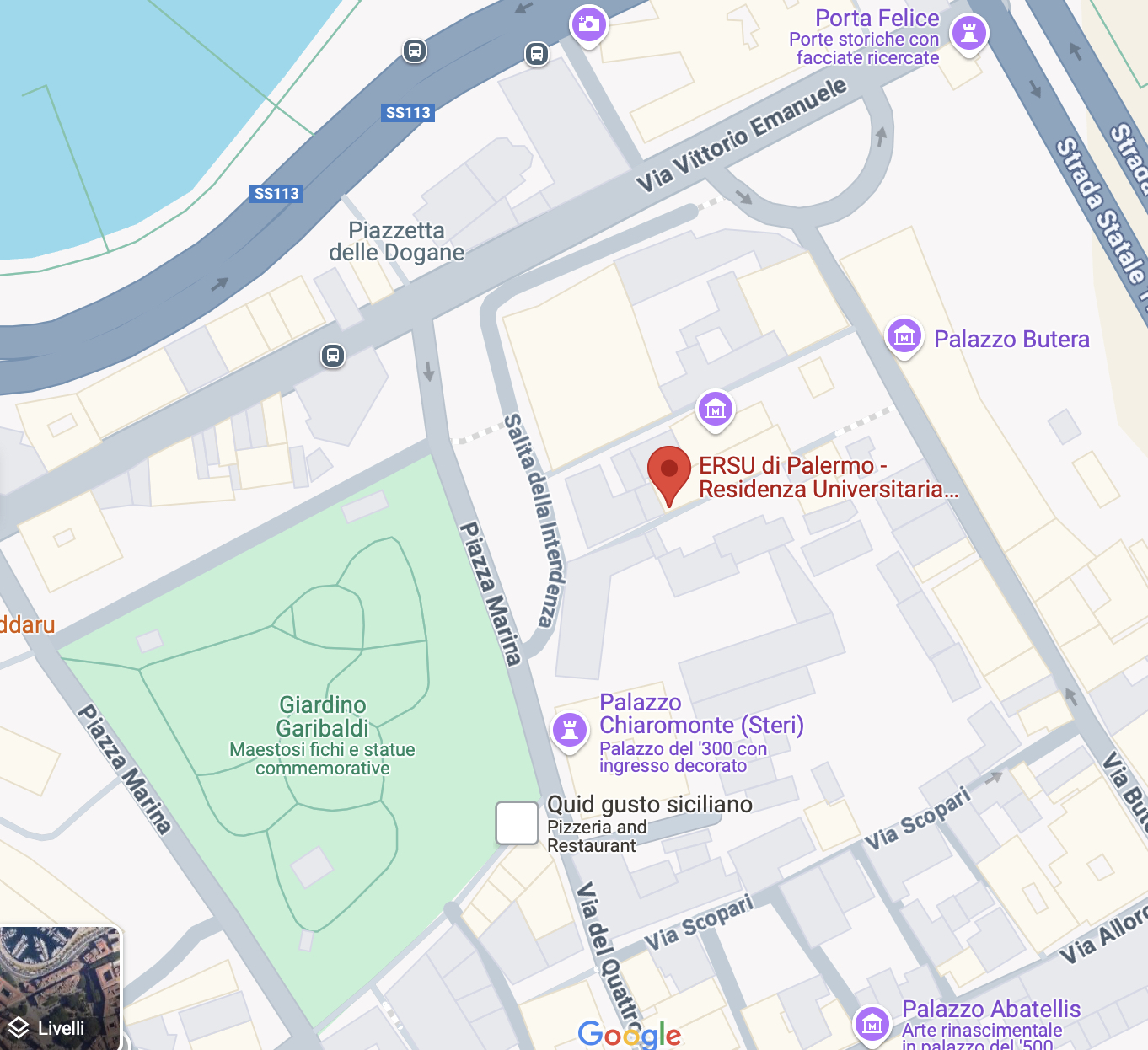The school will be held in the room "Joe Petrosino" within the University residence (ERSU), called Casa del Goliardo - Vicolo dei Sant'Uffizio ai Tribunali, 13, 90133 Palermo PA.

About Palermo University
https://www.unipa.it/mobilita/en/useful-information/about-palermo-university/
The University of Palermo is quite integrated with the City (Palermo) and the overall Region: Sicily. The University fosters the collaboration with the city and the Sicily Region by connecting also special events such as the Graduation Day organizing this event, which celebrate the Unipa students, in some special places in the city center and historical monuments.
Palermo University cannot be separated by the venue where it is located which has influenced in the past, present and futurists development and organization.


